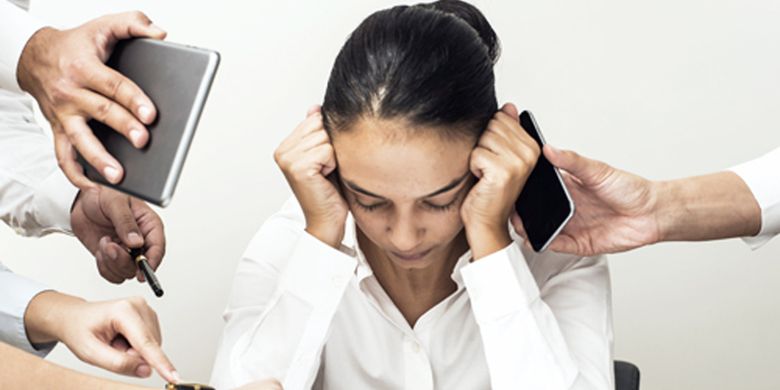Benefits and disadvantages of multitasking for mental health
KOMPAS.com – Doing many things at once or multitasking now a part of everyday life for many people.
Some people are used to eating while watching series, surfing social media, and doing other things.
There are also those who do assignments while playing games, attending meetings, checking social media, or raising children.
Before discussing the benefits and disadvantages for mental health, consider understanding mulititasking following.
Also read: Recognize 9 Signs of Cheating Couples According to Psychology
Reporting from Verywell Mind, generally, multitasking is doing more than one activity simultaneously.
It doesn’t always have to be the same, doing more than one thing at the same time can also be interpreted multitasking.
Other than that, multitasking also refers to doing one thing that is not finished, then moving on to doing other things, then coming back to completing things that are not finished.
Activities that require the brain’s agility to concentrate on doing several things at once have now become commonplace.
In fact, there are some people who appreciate the concept mulitasking because it is considered more productive.
In fact, research shows the opposite results. Multitasking it backfires for productivity.
According to studies, people who are multitasting tend to have a lot of trouble getting things done than people who only focus on doing one thing.
Also read: 8 Characteristics of Creative People According to Positive Psychology
Multitasking mudarat for mental health
 .
.Research has proven, multitasking can have a negative impact on mental health.
Launch Psychology TodayHere are some of the dangers multitasking:
People who often do many things at the same time are prone to experience decreased brain power, especially related to cognitive control, motivation, and emotions.
A 2016 study proves that people are used to it multitasking tend to have memory problems, especially long-term memory.
Habit multitasking it makes it hard for people to focus, or can easily get distracted. Multitasking makes it difficult for people to distinguish between important and insignificant distractions.
Also read: 5 reasons why it is difficult for someone to apologize according to psychology
Habit multitasking when using a computer or device it can cause chronic stress. The reason is, a person can experience a flood of information, be made busy digesting it, and become stressed.
- Increases the risk of depression and anxiety
Many people frequent it multitasking experiencing symptoms of depression and social anxiety disorder.
 Illustration of women with increasing multitasking abilities when there is a situation like the current corona pandemic.
Illustration of women with increasing multitasking abilities when there is a situation like the current corona pandemic.Despite having a series of disadvantages for mental health, multitasking not necessarily bad.
According to studies, people multitasking tend to have better cognitive abilities to integrate visual and auditory information.
This multisensory integration has a positive effect on a person’s cognitive abilities.
Also read: Uncovering the Psychology of Why Many People Believe in Conspiracy Theories
How good?
From the explanation above, multitasking has more negative than positive effects on mental health.
To minimize negative impacts multitasking, one is advised not to do too many things at once.
Limit doing or dividing the maximum focus for two things.
Instead of moving from one thing to another in a matter of minutes, try to devote your attention to one thing for at least 20 minutes.
With this longer pause, the brain’s focus is less constantly distracting, which triggers stress.